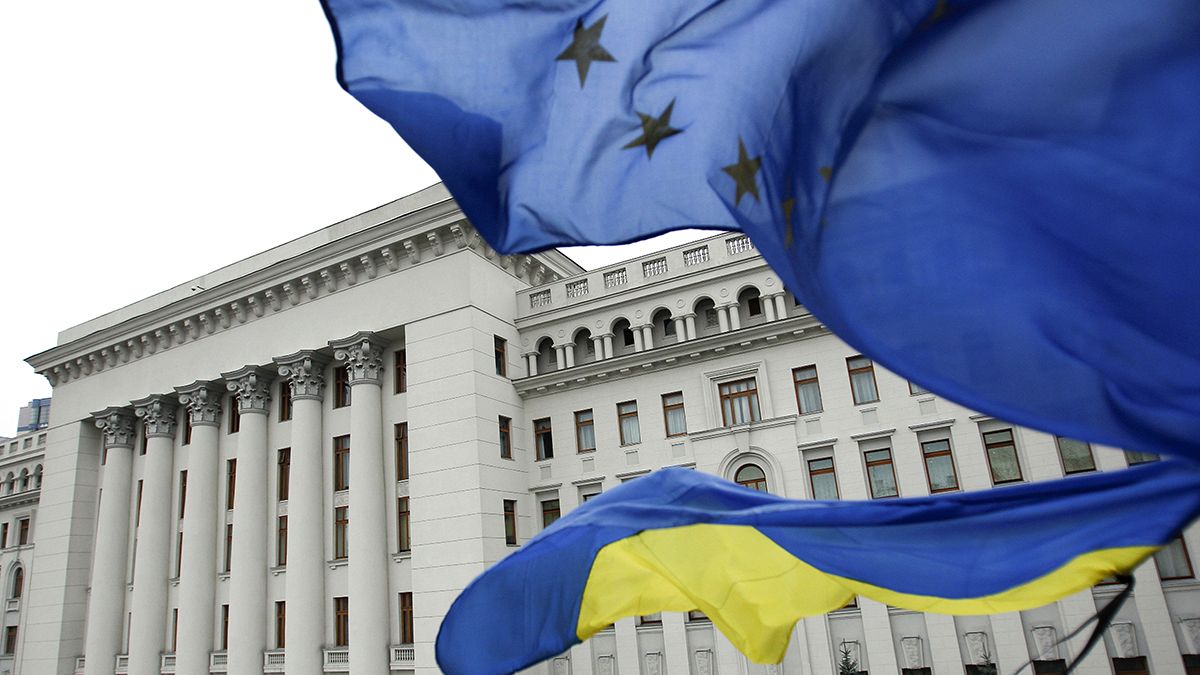Ukraine will sign a free trade pact with the European Union this Friday, new President in Kyiv Petro Poroshenko confirmed last week: “On June 27, I will sign the Association Agreement, concluding the procedure.’‘
Ukraine has paid a high price for this.
Seven months ago, the failure of its then head of state, President Viktor Yanukovitch, to clinch the deal triggered the most violent crisis in Ukraine’s short history of independence.
Last November, Yanukovitch was poised to put pen to paper but was swayed by Moscow not to. He still went to a political gathering with the EU in Vilnius, Lithuania, as a sort of play that his country wasn’t closing the door for the future.
This wasn’t good enough for many Ukrainians. They protested in the streets, peacefully, against their government’s decision to suspend the association procedure.
On 30 November, 2013, special police physically attacked pro-European demonstrators. Official orders were issued banning assembly. Ukrainians grew angrier still.
Yanukovitch went to Moscow, thinking to replace the EU agreement with President Vladimir Putin’s offer of a special price on Russian gas and a multi-billion-rouble economic rescue package.
The authorities in Kyiv unleashed snipers when the demonstrators refused to go away, but the opposition stayed in the heart of the city, demanding the president resign. The clashes grew more violent; people were killed and wounded, and Europe was powerless to stop the bloodshed.
The foreign ministers of France, Germany and Poland travelled to Kyiv to try to negotiate with Yanukovitch. It was February by now.
The following month, Ukraine’s parliament voted to impeach Yanukovitch, and he fled the country. Russian forces then occupied the Crimea region, and it was annexed.
On 21 March, Ukrainian Prime Minister Arseny Yatseniuk signed a political association agreement with EU leaders in Brussels.
The signing of the economic portion was pushed back until after the 25 May elections which were won by Poroshenko.
Iryna Tymshychyn spoke with Amanda Paul, Senior Programme Executive at the European Policy Centre in Brussels, for her analysis on Ukraine today.
Iryna Tymshychyn; euronews:
“Ukraine and the EU are signing the full Association Agreement in a totally different context than they would have seven months ago. The question for many Ukrainians is: after the latest dramatic developments, isn’t it too little, too late?”
Amanda Paul, European Policy Centre analyst:
“Now we have a different situation all together. I think the presidential election showed [this]. The fact that [the Ukrainians] voted for Petro Poroshenko, who ran in the elections on a pro-European card, shows that Ukrainian society is really serious about wanting further integration with the EU.
“From the side of the EU, I think the events over the last few months have sort of made their approach towards Ukraine more dynamic. They are more committed both politically and economically to moving ahead with Ukraine and its integration process.
“Of course, it’s not going to be easy, because we know, and Ukrainian society knows, there’s a risk from big neighbour Russia, which still remains totally opposed to Ukraine integrating with the EU.”
euronews:
“By signing the deal, what message are Ukraine and Europe sending to Russia, especially in terms of the new gas and trade disputes between Kyiv and Moscow?”
Paul:
“Well, signing the deal is very important. It’s a clear message to the Russians that Ukraine will go ahead with its sovereign choice of integrating with the EU, despite of the bullying and coercive steps by Russia — that continue to be taken by Russia. [It’s a clear message] that they are not going to allow the Russians to prevent Ukraine from following its future as an independent country, [the way Ukrainians] want to have their future.
“Of course, Russia still has many cards to play. It’s playing the gas card. Hopefully, this will be resolved in the near future. If the EU integrates Ukraine correctly into its own energy market, takes the necessary measures, we can resolve this issue.
“At the end of the day, the country that will pay the largest price will, in fact, be the Russian Federation.”
euronews:
“Finally, do you believe the deal can help bring about the required reforms and persuade the pro-Russian elements in Ukraine (including Crimea) that the pro-European choice of the new leadership was the correct one?”
Paul:
“This Ukrainian government will be under the watchful eye of Ukrainian society, of euro-Maidan, [to see] that they stick to the pledges that they made. And I believe that if they build a strong Ukraine, a prosperous Ukraine, that abides by the rule of law and other fundamental rights and freedoms, this can be the best recipe for integrating the whole country.
“[The best recipe will be to make] the country strong, and [make it into] something that the [dissatisfied] elements of Ukrainian society — the people who are carrying out these terrible acts in eastern Ukraine — will want to be part of.”
euronews:
“In the near future, is Europe really ready to stand by Ukraine and to help facilitate the reforms?”
Paul:
“I think the EU will do all it can to support the reform process, but if you are asking whether Europe is ready to give Ukraine [prospects for] membership, which would be the best carrot in the world [and would] make the Ukrainian reform process quick and successful, no they are not.
“However, I think this will, hopefully, come in the medium term, not in the short term. I think Ukraine, as a European state, deserves such a membership prospect. It deserves to be in the EU.
“The EU has a strong role to play in supporting Ukraine. It also needs to continue to support other elements in Russia, civil society and other stake-holders and opposition [so that they will be able] to move forward.
“They need to give this region priority. We can’t afford to see it go down the list on the agenda.”


